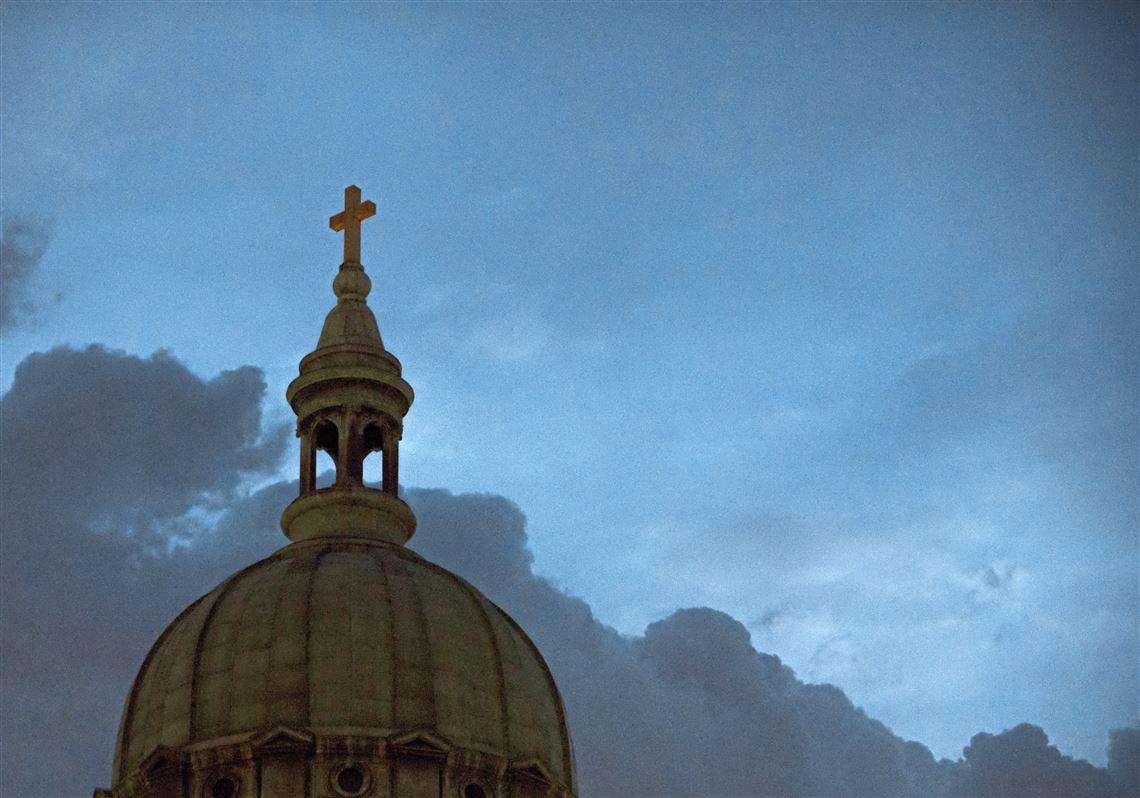|
Abuse lawsuits open a second front on time limits
By Peter Smith
The dozen lawsuits filed this week against the Roman Catholic Diocese of Pittsburgh represent the opening of a second front in the effort to overcome the statute of limitations and enable victims to sue over decades-old sexual abuse, even as a similar effort remains stalled in Harrisburg. The plaintiffs allege that the diocese engaged in a systematic effort at fraud and concealment, which the victims couldn’t have known about when they were younger because it’s only now in the open, thanks to an August grand jury report. As a result, they claim, the statute of limitations that normally would have closed the courtroom door to them long ago should be opened wide. It’s an argument that their attorneys tried more than a decade ago without success. But this time they are banking on the statewide grand jury report released in August to reverse their fortunes. “Upon reading the grand jury's report, plaintiff learned the diocese was a location rampant with child molestation for decades,” reads language in one of the lawsuits, which is echoed in others. “Upon reading the grand jury’s report, plaintiff learned for the first time that the Diocese of Pittsburgh and its bishops had a long history of protecting child predators at the expense of innocent and vulnerable children,” a lawsuit says. “... The suppression of the identity of dozens of pedophile priests and church employees was a fraudulent scheme to prevent the filing of criminal and civil complaints against diocesan defendants and the child predators they employed.” In 12 lawsuits filed Thursday in Allegheny County Common Pleas Court, 14 plaintiffs alleged they were molested by priests as children between the late 1950s and the 1980s. They are naming as defendants the diocese, current Bishop David Zubik, and his predecessor, Cardinal Donald Wuerl, the outgoing head of the Archdiocese of Washington. The grand jury report said more than 300 priests across much of Pennsylvania, including 90 in the Diocese of Pittsburgh, had sexually abused children over seven decades, mostly before 1990. The report sent shockwaves around the world and fueled an effort in the Pennsylvania Legislature to create a two-year window in the statute of limitations to allow people to sue over long-ago abuse. That effort fell short in October. Even while legislative proponents hope to revive that effort, “we’re attacking the statute of limitations judicially,” said Pittsburgh attorney Alan Perer, who represents the plaintiffs in the new suits. He acknowledged the lawsuits represent only the first step in a battle that could well reach the Pennsylvania Supreme Court. Advocates say it often takes victims years or decades to come to terms with their abuse and seek redress. But Catholic dioceses have argued that statutes of limitations exist to protect all defendants long after the fading of memories and the disappearance of evidence that might help their case. They say lifting the statute would be financially ruinous for churches and their ministries. The Pittsburgh diocese and six others announced plans earlier this month for compensation funds for victims, who would be eligible even if they couldn’t file lawsuits under the statute of limitations. The dioceses did not give specifics on how much money they would provide. Victims’ advocates said such settlements wouldn’t necessarily allow for the production of evidence that lawsuits would. For those in Pennsylvania who were sexually abused as children in much of the 20th century, victims had until either their 18th or 20th birthdays to sue. In 2002, lawmakers extended that to age 30. After a long-simmering scandal of sexual abuse in the church erupted in Boston and spread worldwide in 2002, Mr. Perer and other attorneys represented plaintiffs suing over abuse that even then was decades in the past. While an Allegheny County judge allowed their cases to proceed, a separate case involving the Archdiocese of Philadelphia was tossed out, and that decision was upheld on appeal to state Superior Court in 2005. The Superior Court said even if the plaintiffs didn’t know all the facts of their cases when they were younger, they knew they had been abused and could have used due diligence by starting a lawsuit then. That precedent put the brakes on the Pittsburgh lawsuits, and 32 plaintiffs ultimately settled with the diocese for a total of $1.25 million, a small figure compared with settlements in other states. The ruling also prevented attorneys from embarking on a discovery process — such as obtaining evidence and testimony from the diocese — to attempt to prove their cases. “We didn’t even get up to bat,” Mr. Perer said. But now that the grand jury, using its own subpoena power, has produced what it calls evidence of coverup, he believes “it’s a different time now.” The current set of lawsuits accused the defendants of fraud and conspiracy. It said the plaintiffs couldn’t have known when they were younger about the extent of the coverup alleged by the grand jury “despite the exercise of utmost due diligence.” During the earlier wave of lawsuits, the diocese disputed the claim of an ongoing conspiracy of fraud, saying then-Bishop Wuerl was a pioneer in zero-tolerance policies and never knowingly moved an abusive priest from parish to parish or conspired to prevent victims from reporting abuse to police. But the grand jury challenged that picture of Cardinal Wuerl as a reformer. It said he allowed a priest to remain in ministry despite multiple allegations of abuse and presided over a settlement that required victims' public silence about their abuse. Both Cardinal Wuerl and the diocese have disputed portions of the report, arguing that they are inaccurate or lack the proper context, although he did admit to “errors in judgment.” But in the wake of the report and other controversy, Pope Francis accepted Cardinal Wuerl’s resignation as archbishop of Washington last month. Contact: petersmith@post-gazette.com
|
.
Any original material on these pages is copyright © BishopAccountability.org 2004. Reproduce freely with attribution.
